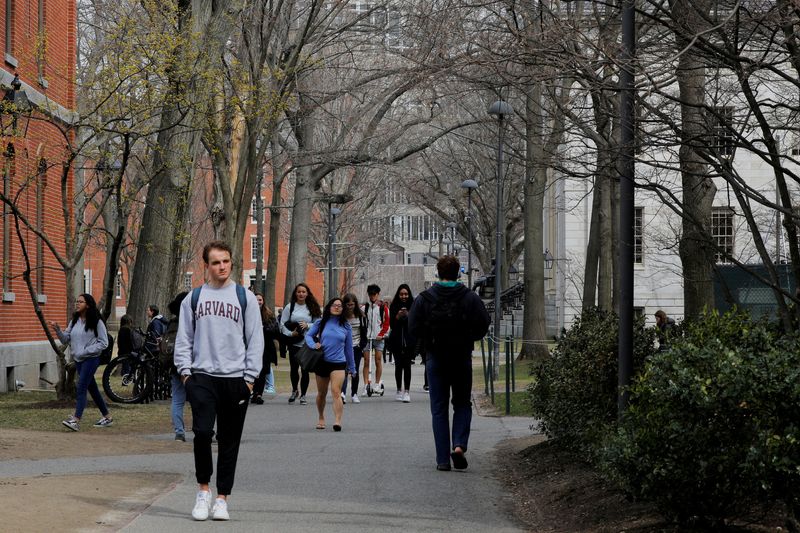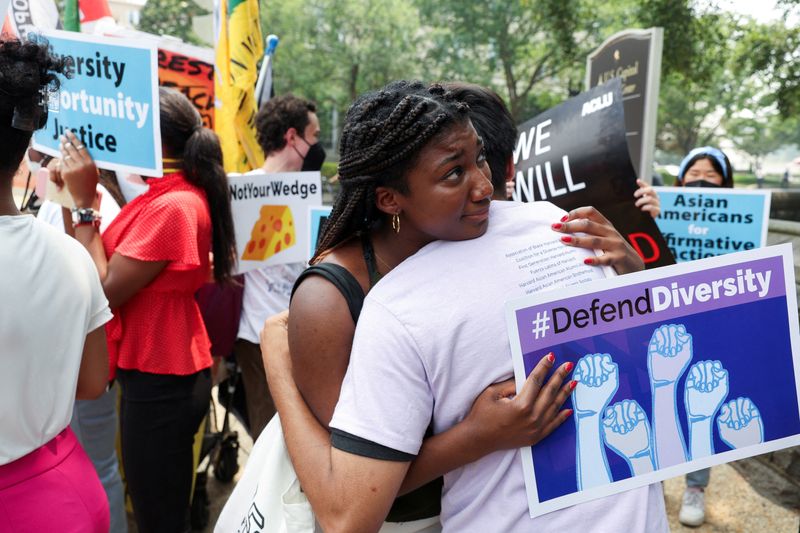By Nate Raymond and Jarrett Renshaw
(Reuters) - The Biden administration on Monday issued new guidance to colleges and universities on how they could still legally encourage racial diversity on their campuses even after the U.S. Supreme Court ended affirmative action in college admissions.
The guidance, from the Education and Justice departments, came after the conservative-majority Supreme Court in June ruled that colleges cannot legally consider race as a factor on its own when deciding whom to admit to their schools.
Democratic President Joe Biden's administration had defended that long-standing practice in the court cases against Harvard University and the University of North Carolina.
The ruling left some questions unanswered, and more legal challenges by conservative activists are expected targeting diversity initiatives in education and corporate America.
Education Secretary Miguel Cardona said promoting campus diversity remained important even after the ruling.
"We know what has happened at colleges, when individual states have banned affirmative action in the past,” he told reporters. “Fewer students of color applied, and fewer students of color were admitted. We cannot afford that kind of backpedaling on a national scale."
In guidance documents issued on Monday, his department and the Justice Department said that after that ruling, schools cannot allow their admissions decisions to be influenced by any demographic data related to an applicant's race that they collect.
But the departments said universities may consider how race has affected an applicant's life, such as in an applicant's essay. One example would be if someone wrote what it meant to be the first Black violinist in a youth orchestra.
Universities may also pursue targeted outreach and recruitment to boost enrollment of underrepresented groups and may consider race and other factors like geography, financial resources and family background in doing so, the departments said.

Schools may also re-examine other admissions preferences, such as those given to "legacy" applicants related to alumni or donors' children, which "reduce opportunities for others who have been foreclosed from such advantages," the departments said.
The Education Department's Office of Civil Rights last month opened an investigation into whether Harvard racially discriminates by favoring "legacy" applicants, which civil rights groups say favors white applicants.
